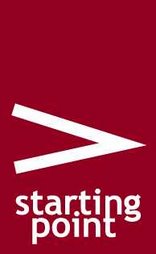From a sociocultural perspective, learning is a process carried out in interaction with more knowledgeable others. Those 'others' can be adults, they can be teachers, or they can be peers that know more about the topic than we do. In peer to peer interaction, what normally happens is that we discuss what we think we know about a topic, then we try to iron out the differences between what we believe. These differences are called 'dissonance' and they cause a 'cognitive conflict' because what you believe is not the same as what I believe. The truth is that our beliefs are caused by our experience; since we don't have the same experience, we probably don't hold the same beliefs.
Anyway, sharing these differences and negotiating them to try to come up with the truth is what we call knowledge building. Notice then, that we usually don't learn because someone tells us something: we learn because we- together with someone else- build our knowledge.
This is what I feel didn't happen with the participants in my study: they limited themselves to finding definitions and posting these on a wiki without ever discussing if what they were doing matched what they believed about how vocabulary is learned.
So, that's the next step in the project.
martes, 10 de febrero de 2009
miércoles, 4 de febrero de 2009
Wikis for vocabulary work
The task consisted of putting vocabulary words- together with definitions, examples, images, translations, on the wikis. We had a list of 600 words from Barron's 600 Essential Words for the TOEIC Workbook. We divided the words between the two teams- 300 each- and told them that their job was to learn the words, make sure their teammates learned the words, and make sure the other team learned them, too. The idea was to give the students responsibility not only for their own learning, but for their classmates' learning, too.
The team together had to decide how they would work, and who would be responsible for what. Now, remember that my goal is to see if a learning community would form among the students. The literature tells us that a learning community needs to have several elements: they need to establish a goal, they need to set up rules, they need to create a sense of common identity, they need to feel shared responsibility, they need to negotiate their different points of view to give way to a shared one, and, very importantly, they need to build knowledge.
In Team 1, it was clear to see the first five elements: they spent a lot of time and thought on giving their team a name, on establishing the whats and hows and whys of their project, and on teaching each other, too. The relationship was symmetrical in the sense that their was no student who was the clear expert. They learned individually how to work with the wiki, and they shared that knowledge with others.
These elements were less clear in Team 2, pretty much they divided up the work and then did it individually. However, I can't honestly say that there was knowledge building in the work they did. I'll talk more about that next time.
Meanwhile, you can check out the students' wikis here: Team 1 and Team 2.
The team together had to decide how they would work, and who would be responsible for what. Now, remember that my goal is to see if a learning community would form among the students. The literature tells us that a learning community needs to have several elements: they need to establish a goal, they need to set up rules, they need to create a sense of common identity, they need to feel shared responsibility, they need to negotiate their different points of view to give way to a shared one, and, very importantly, they need to build knowledge.
In Team 1, it was clear to see the first five elements: they spent a lot of time and thought on giving their team a name, on establishing the whats and hows and whys of their project, and on teaching each other, too. The relationship was symmetrical in the sense that their was no student who was the clear expert. They learned individually how to work with the wiki, and they shared that knowledge with others.
These elements were less clear in Team 2, pretty much they divided up the work and then did it individually. However, I can't honestly say that there was knowledge building in the work they did. I'll talk more about that next time.
Meanwhile, you can check out the students' wikis here: Team 1 and Team 2.
Suscribirse a:
Comentarios (Atom)
